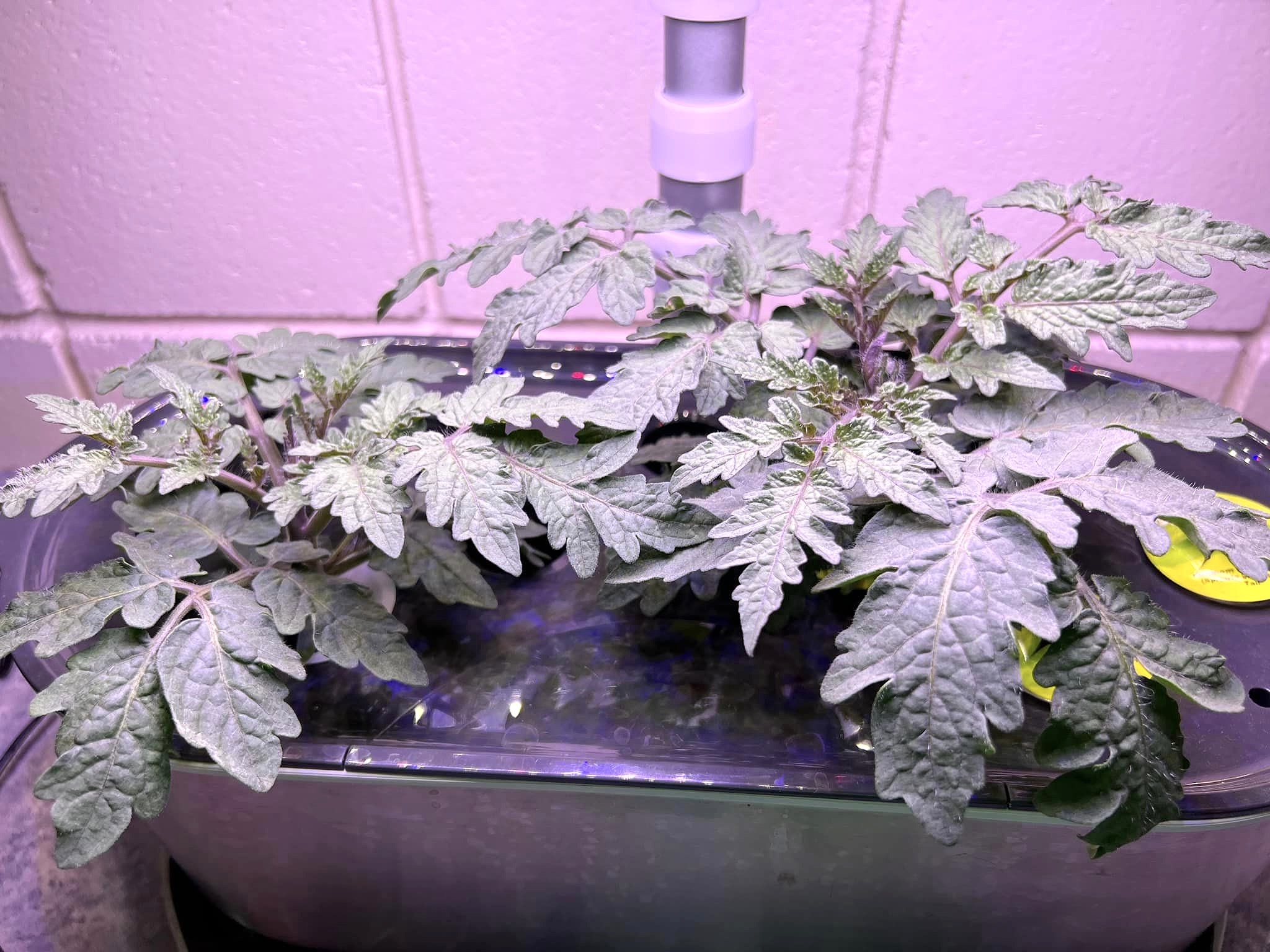As we previously discussed in our Policy Alternatives and Food Security blog article, data and research demonstrate that poverty is the cause of household food insecurity. Food banks were created to feed the hungry, but this emergency response has become a permanent fixture.
Why are we so reliant on food drives when we know that they do not end hunger nor poverty?

This conversation between Valerie Tarasuk, founder of the Food Insecurity Policy Research Team at the University of Toronto, and Paul Taylor, executive director of FoodShare Toronto highlights concerns about the efficiency of food drives. Tarasuk argued that food charity is not addressing the root cause of food insecurity, that being poverty. Food drives highlight the generosity of Canadians, but it will not solve hunger in the long run. In support of this argument, Taylor agrees that food charity provides an immediate response to hunger but does not address the larger problem. Taylor added that organizations such as FoodShare do not solve food insecurity nor poverty.
Provide a basic income to move away from the charity model as the primary response to household food insecurity
The Lindsay Advocate and York University’s Health Policy and Equity Graduate students created the Basic Income Plus movement. This movement was established to improve Canadians’ lives in both working- and middle-classes through social policy changes. The five key policies that serve as the basis of this non-partisan movement include basic income, affordable housing, universal pharmacare, green economy, and more public enterprises.

Another advocacy network is the Basic Income Canada Youth Network, or the BICYN. This network, established in 2020, aims to spread knowledge and advocate for a basic income through community-building efforts. One of their initiatives is the #BasicIncomeBoughtMe campaign, which seeks to highlight the lived experiences of the Ontario Basic Income Pilot Project participants and how their lives were changed through receiving an ultimately short-lived basic income.
According to Senator Yuen Pau Woo, basic income does not provide a lavish lifestyle, but it gives people the freedom to learn, have roofs on their heads, and food to serve on their tables. Similarly, 47 senators recently signed a news release that called on the Federal Government to support a province-wide guaranteed livable basic income in Prince Edward Island.
A basic income with a significant investment to rebuild Canada’s social safety net would allow people to access universal basic services such as education and employment training, affordable housing, and child care.
Basic Income and COVID-19
When the COVID-19 pandemic hit Canada in early 2020, Prime Minister Justin Trudeau promised that no one would be left behind. Approximately $109.5 billion funds were allocated to the Canada Emergency Response Benefit and its transition plan, which could help mitigate food insecurity. However, not all Canadians were eligible for this benefit. Thus, food insecurity is still on the rise.
The government of Canada has started investigating the cost of a guaranteed basic income during the COVID-19 pandemic, but they have also continued to fund food banks rather than taking concrete steps to provide adequate income to all Canadians.
Other factors, while brought up with good intentions, can also cause a distracting debate
Food Waste
Many see food banks as a solution to both food insecurity and food waste, encouraging companies to donate food unfit for selling. All provinces also have a version of the Good Samaritan Act to aid this purpose (Manitoba has The Food Donations Act, for example). Redirecting food waste to ensure that people’s right to food is met amplifies societal inequalities, especially when monetary incentives are involved. Food waste is a serious environmental issue and is an important contributor to global warming, but this problem requires its own set of solutions.
Seasonal Donations
In their Whiteboard Video, PROOF discusses that the food charity model cannot be bolstered by increased public donations to the point of reducing food insecurity. This is because an increase in food supply must also be accompanied by an increase in related capacity, including storage, staff, and volunteer efforts, which would all require a massive increase in additional public funding.
Further, in terms of seasonal donations, the Greater Vancouver Food Bank shared an article from the National Post, outlining why monetary donations are more effective than canned food donations. This is a difficult topic for charitable food organizations to discuss though, as they fear alienating donors. As much as donations, no matter the type, can help alleviate hunger in the short term, this is not a solution to food insecurity. There will be more to dive into on this next month.
Community Gardens
Proof also mentions in their Whiteboard Video that community gardens are another manifestation of ineffective responses to solve food security alone. As noted in a Winnipeg-based report on the Meadowood Victory Garden, community gardens bolster a sense of community, promotes social interaction and wellbeing, and helps protect the environment, but this type of project has very limited impact on reducing food insecurity. Community gardens should continue to be established for their numerous benefits, but positioning them as a solution to food insecurity can be disingenuous and misleading.
It is clear that household food insecurity is most tightly linked to insufficient income. However, as food insecurity is primarily an experience, it remains a complex topic that can be easily misunderstood. It is crucial to involve people of all ages and different walks of life to hear food insecurity truths.
New Internationalist. How food banks went global. (2020). Retrieved on July 5 2021 from https://newint.org/immersive/2020/11/10/how-foodbanks-went-global
PROOF Food Insecurity Policy Research. Relationship between food banks and food insecurity. (2019). Retrieved on July 5 2021 from https://proof.utoronto.ca/resources/fact-sheets/
PROOF Food Insecurity Policy Research. Household Food Insecurity in Canada. (2021). Retrieved on November 23 2021 from https://proof.utoronto.ca/food-insecurity/#income
World Wild Life. Fight climate change by preventing food waste. (2021). Retrieved on July 5 2021 from https://www.worldwildlife.org/stories/fight-climate-change-by-preventing-food-waste
CBC Radio. The Current. (2020). Retrieved on July 5 2021 from https://www.cbc.ca/radio/thecurrent/the-current-for-nov-26-2020-1.5817137
The Lindsay Advocate. Basic Income Plus. (2021). Retrieved on July 5 2021 from https://lindsayadvocate.ca/basic-income-plus/
CBC Radio. As It Happens. (2020). Retrieved on July 5 2021 from https://www.cbc.ca/radio/asithappens/as-it-happens-the-wednesday-edition-1.5641940/it-s-time-to-take-a-leap-of-faith-and-test-basic-income-in-canada-says-senator-1.5641942
The Conversation Canada. Canada must eliminate food banks and provide a basic income after COVID-19. (2020). Retrieved on July 5 2021 from https://theconversation.com/canada-must-eliminate-food-banks-and-provide-a-basic-income-after-covid-19-144994?utm_medium=email&utm_campaign=Latest%20from%20The%20Conversation%20for%20September%2011%202020&utm_content=Latest%20from%20The%20Conversation%20for%20September%2011%202020+CID_532e2854bd2a344536c20fd4f24ad94d&utm_source=campaign_monitor_ca&utm_term=Canada%20must%20eliminate%20food%20banks%20and%20provide%20a%20basic%20income%20after%20COVID-19
COSTING A GUARANTEED BASIC INCOME DURING THE COVID PANDEMIC. Office of the Parliamentary Budget Officer. (2020). Retrieved on July 5 2021 from https://www.pbo-dpb.gc.ca/web/default/files/Documents/Reports/RP-2021-014-M/RP-2021-014-M_en.pdf
The Tyee. Graham Riches. How Food Banks Prop up a Broken System. (2020). Retrieved on July 5 2021 from https://thetyee.ca/Opinion/2020/04/22/Food-Banks-Prop-Broken-System/
Toronto Star. Paul Taylor. Pandemic has exposed the rifts in our social fabric. (2020). Retrieved on July 5 2021 from https://www.thestar.com/opinion/contributors/2020/04/21/pandemic-has-exposed-the-rifts-in-our-social-fabric.html
Basic Income Canada Youth Network. (2020). Retrieved on November 22 2021 from https://www.basicincomeyouth.ca/
Funk, L. and Li, F. The Right to Food and Community Gardens in Winnipeg. (2021). Retrieved on November 22 2021 from https://chrr.info/wp-content/uploads/2021/07/Meadowood-Victory-Garden-Report-PDF.pdf
Gollom, M. CBC. Ford Government Ditched Basic Income Pilot Project Before any Data Landed, Researchers Say. (2018). Retrieved on November 22 2021 from https://www.cbc.ca/news/canada/basic-income-pilot-project-ford-cancel-1.4771343
Greater Vancouver Food Bank. Help the Poor: Stop Donating Canned Goods to Food Banks. (2019). Retrieved on November 23 2021 from https://foodbank.bc.ca/blog/help-the-poor-stop-donating-canned-goods-to-food-banks/
Sen. Pate, K. Twitter. Statement: Senators Call for Federal Support of PEI Guaranteed Livable Basic Income. (2021). Retrieved on November 22 2021 from https://twitter.com/KPateontheHill/status/1456647700477366273
© Copyright. All rights reserved. The content of this post may be used for educational purposes without written permission. For other uses, please contact the author(s) of the content








